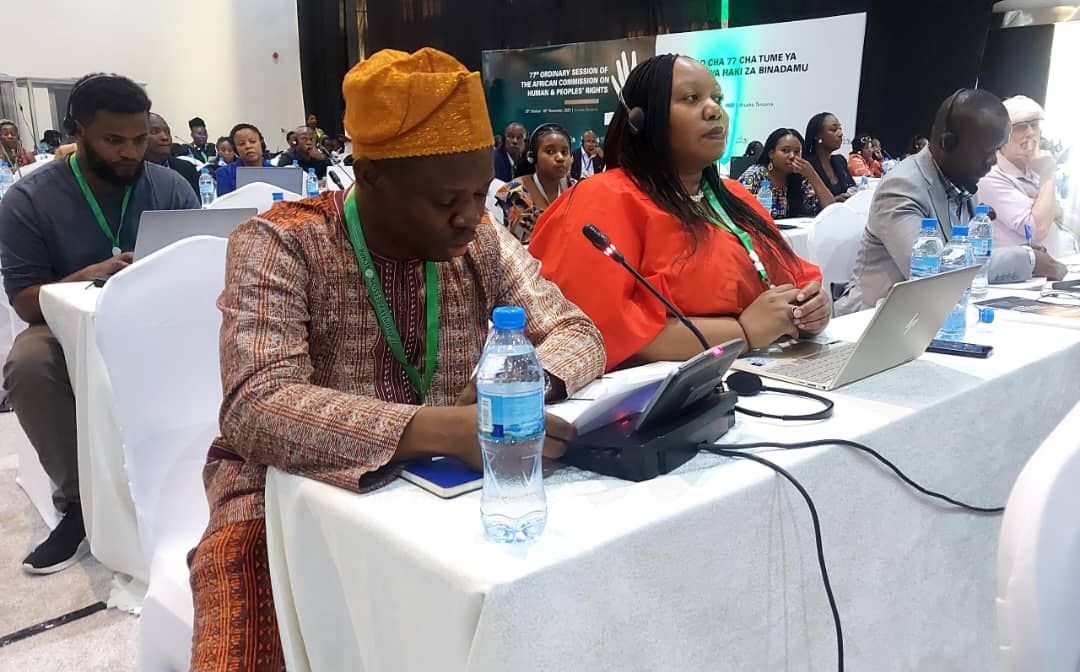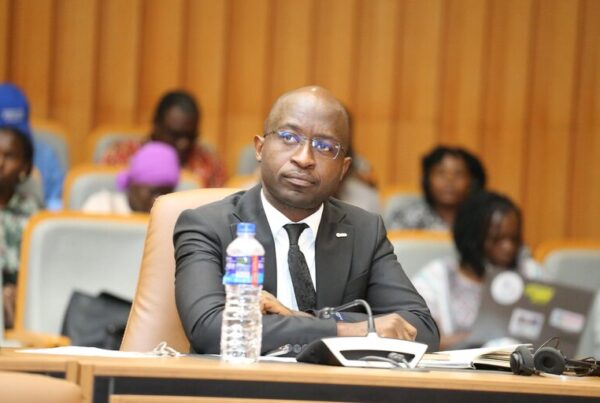Arusha, 22 October 2023:
Honourable Chairperson and Commissioners of the African Commission on Human and Peoples’ Rights,
Excellencies,
Honourable State Party Delegates, and
Distinguished Colleagues from Civil Society,
All protocols observed.
The Institute for Human Rights and Development in Africa, also known as the IHRDA, congratulates the African Commission on Human and Peoples Rights on the holding of its 77th Ordinary Session here in the United Republic of Tanzania.
The IHRDA is a pan-African non-governmental organization that promotes the use and effectiveness of the African Human Rights system as well as equitable and sustainable development for all Africans.
The IHRDA views the African Commission as one of its strongest and closest partners in respect of delivering on our mandate. In this regard, we commend the African Commission for the meaningful work it has been doing since inception on guaranteeing human rights and justice for many individuals and peoples on the African continent. We believe that the Commission has given life to the human rights provisions in the African Charter on Human and Peoples’ Rights through its communications procedure, as well as through its development of soft law, among others. In the absence of universal access for all Africans to the African Court on Human and Peoples’ Rights, the African Commission as well as the African Committee of Experts on the Rights and Welfare of the Child provide human rights dispute resolution mechanisms that many in Africa rely on as their last resort in the quest for justice.
It is for these reasons that the IHRDA registers our strong concern over reports that ongoing reforms in the African Union seek to consolidate all the African Union human rights treaty bodies into a single entity. The proposed reforms threaten the effectiveness of the African Human Rights system. In fact, the proposed reforms, if implemented, will – without question – have adverse implications, including the loss of a specialised focus, conflicting priorities, bureaucratic challenges, and an overstretched mandate, among other things. Sadly, it will be the end users – our fellow Africans whose rights we collectively work to protect – who will shoulder the impact. Worse still, civil society has not been effectively carried along in the reforms process thus silencing the voices of the people we collectively serve.
To this end, we urge African Union Member States to:
- Ensure that the African Union engages in a wide stakeholder consultation, that includes civil society, as considers the reforms of the African Union; and
- Strongly reject the proposal to alter the treaty-based mandates of the mechanisms in the African human rights system.
In a similar vein, we also register our strong concerns over the expanded interpretation the African Commission has given to article 59 (1) of the African Charter on Human and Peoples’ Rights. Article 59 (1) stipulates that actions undertaken by the Commission under the communications procedure are to be kept confidential until authorized for disclosure by the AU Heads of State and Government. Regrettably, the Commission’s interpretation extends this confidentiality to include all related records and legal submissions by involved parties. This expansive interpretation has far-reaching implications for human rights and the participatory role of civil society organizations in ongoing legal proceedings.
For instance, while the Rules of Procedure of the Commission provide for the intervention of third parties and amici curiae, the expanded application of the rules on confidentiality makes it impracticable for would-be interveners to know about the existence of communications that they are interested in. This can have far-reaching and unintended, adverse consequences on access to justice. Therefore, the IHRDA urges the Commission to reconsider its interpretation of this provision, and reach a progressive interpretation that is in line with the literal meaning of the provision which only makes the measures taken by the Commission confidential.
We would be remiss not to commend the Commission’s efforts to enforce compliance with its decisions. However, the IHRDA is deeply concerned over the ongoing challenges with implementation. The consequences of these challenges are immeasurable, as they foster impunity and hinder the Commission’s ability to fulfill its mandate of safeguarding and advancing human rights in Africa. As such, we strongly urge the Commission to consider a long overdue, robust follow-up mechanism to ensure implementation of its decisions to strengthen its mandate of protecting human rights in Africa.
In closing, we reconfirm our commitment to work in partnership with the Commission and all champions for human rights and development in Africa; and we look forward to continued engagement that will ensure respect for human rights and development for all Africans.






